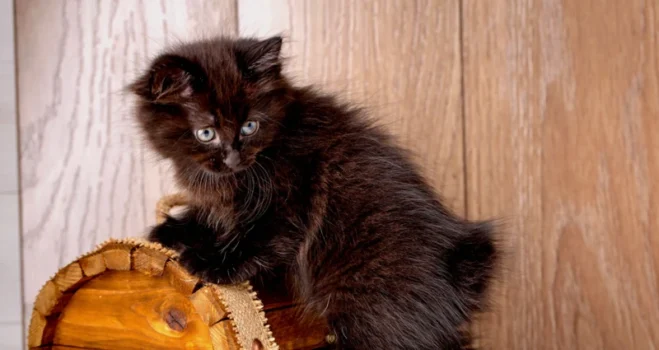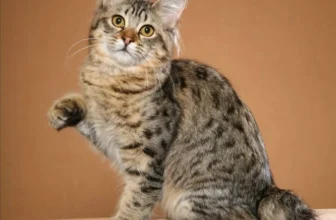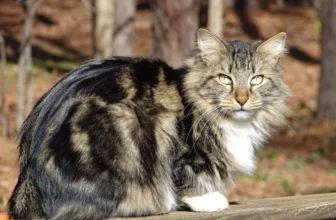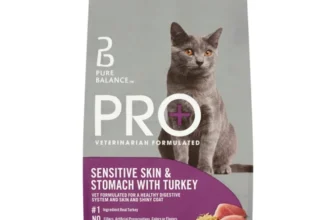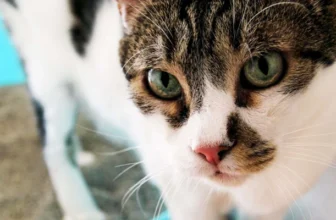As a pet owner, ensuring the health and well-being of your furry companion is of utmost importance. However, dental care is often an overlooked aspect of pet health, particularly when it comes to American Bobtails. Have you ever wondered if dental treatments for American Bobtails are really necessary? In this article, we will dive into the importance of dental care for American Bobtails, the types of dental treatments they may need, and the benefits of regular dental check-ups. We’ll also cover how often your furry friend should receive dental treatments, how to take care of their teeth at home, and tips for choosing the right vet. Whether you’re a seasoned cat parent or new to owning a feline, this article will help you understand why dental care for American Bobtails is crucial for their oral and overall health.
Why Dental Treatments are Necessary for American Bobtails
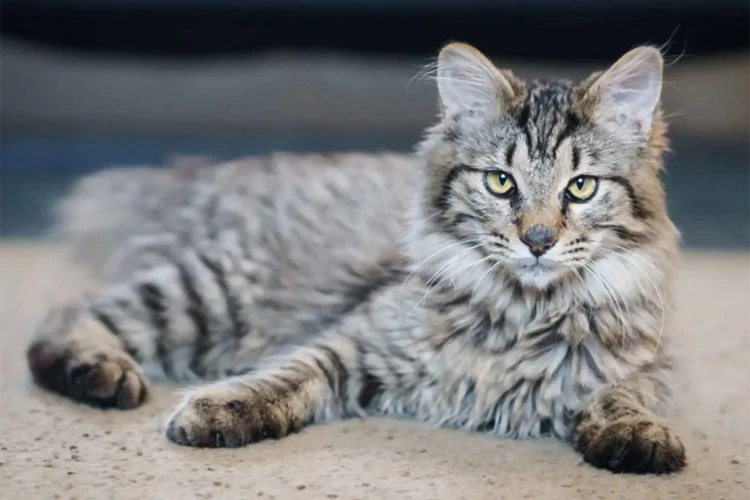
Taking care of your American Bobtail’s dental health is an important part of their overall wellness. Like humans, cats can also experience various dental problems such as tartar buildup, gum disease, and tooth loss. You need to have a good understanding of the reasons why dental treatments are necessary for American Bobtails. In this article, we will highlight some of the key reasons why dental treatments are essential for your feline friend, including preventing dental issues, improving overall health, and preventing bad breath and tartar buildup. If you want to learn more about dental health in American Bobtails, make sure to check out our guide on American Bobtail dental problems prevention.
Preventing Dental Issues
Proper dental treatments for American Bobtails are necessary in preventing dental issues down the line. While regular home oral hygiene such as teeth brushing and giving dental treats can help, professional treatments at the vet are essential in maintaining your cat’s dental health. Neglecting your feline’s dental hygiene can result in various dental issues, including periodontal disease, gingivitis, and tooth decay.
Periodontal disease is a bacterial infection that affects the tissues and structures surrounding your cat’s teeth. This condition is caused by the buildup of plaque and tartar on the teeth, which can eventually cause the gums to recede and the teeth to loosen. Periodontal disease can be painful for your cat and may also lead to more severe health problems, such as heart disease.
Gingivitis, on the other hand, is a mild form of periodontal disease characterized by inflammation of the gums. This condition can cause red, swollen, and bleeding gums. Gingivitis can be reversed if caught early, but if left untreated, it can lead to periodontitis.
Tooth decay is caused by bacteria in the mouth that produces acids which slowly erode the tooth enamel. Eventually, if left untreated, the decay will go deeper, affecting the root canal and nerves, and cause excruciating pain for your cat. Tooth decay can be caused by poor dental hygiene, a poor diet, or the genetics of the cat.
Regular dental treatments like professional teeth cleaning, scaling and polishing, fluoride treatments, and dental surgery can help prevent these painful and often costly dental issues. These treatments can also help your cat keep their teeth longer, reduce the risk of developing more severe conditions, and enjoy better oral health.
In addition to preventing dental problems, dental treatments can also help improve your American Bobtail’s overall health. Neglecting dental issues can lead to ailments such as bad breath, oral pain, and discomfort, which can cause your cat to lose weight, not want to eat, and have a generally lower quality of life.
It’s essential to schedule regular dental visits with your vet to ensure that your American Bobtail’s dental health is taken care of. Continual care at home is also crucial and includes brushing your cat’s teeth regularly, monitor their diet, provide dental treats, and use dental toys to help prevent tartar buildup. For more information on how to take care of your American Bobtail’s dental health, check out our article on American Bobtail Teeth Care Tips.
Improving Overall Health
Regular dental treatments for American Bobtails can go a long way in improving their overall health. Poor dental hygiene in cats can lead to a variety of health issues that can affect their overall well-being. For instance, dental diseases can cause chronic pain and discomfort in cats, which can result in a lack of activity, loss of appetite, and depression.
Additionally, dental diseases in American Bobtails can lead to more serious health problems such as kidney disease, liver disease, and heart disease. This is because bacteria from gum disease can enter the bloodstream and easily spread throughout the body. Treatment of these illnesses can involve expensive medications and repeated vet visits, adding to the financial burden of pet ownership.
However, with proper dental care, including regular professional teeth cleanings and at-home dental hygiene, American Bobtails can achieve improved overall health that ensures they remain active, happy, and healthy for years to come.
For more information about preventing dental problems in American Bobtails, check out our article on preventing dental issues in American Bobtails. To learn more about how to take care of your American Bobtail’s teeth at home, read our comprehensive guide on American Bobtail teeth brushing or our recommended list of dental toys for American Bobtail cats. Additionally, selecting the right cat food plays a significant role in maintaining dental health, so be sure to check out the best cat food for Bobtail dental health.
Preventing Bad Breath and Tartar Buildup
Good dental hygiene can prevent bad breath and tartar buildup in American Bobtails. Poor dental hygiene can lead to the buildup of bacteria in the mouth, causing bad breath and the accumulation of tartar on the teeth. Tartar is a hardened form of dental plaque, which can cause inflammation of the gums or even tooth loss.
Regular dental treatments are necessary to keep your American Bobtail’s teeth and gums healthy. Professional teeth cleaning, scaling and polishing, and fluoride treatments are all effective ways to prevent bad breath and tartar buildup.
In addition to professional treatments, there are a few things that you can do at home to help prevent dental issues. These include:
| Steps for Preventing Bad Breath and Tartar Buildup | Details |
|---|---|
| Regular Brushing | Brushing your American Bobtail’s teeth regularly can remove food particles and bacteria that can lead to bad breath and tartar buildup. Make sure to use toothpaste designed for cats, as human toothpaste can be harmful to them. |
| Healthy Diet | A healthy diet rich in nutrients can help prevent dental issues. Avoid giving your American Bobtail sugary or starchy foods, which can lead to the buildup of plaque. |
| Dental Chews and Toys | Dental chews and toys can help to remove plaque and tartar buildup. Make sure to choose products that are safe for cats, as some toys can be harmful to them. |
| Regular Vet Visits | Regular vet visits can help to identify dental issues before they become serious. Your veterinarian can recommend a dental treatment plan that is tailored to your American Bobtail’s needs. |
By following these steps, you can help to prevent bad breath and tartar buildup in your American Bobtail. In case you notice any dental issues in your cat, make sure to schedule a veterinary appointment. Regular dental treatments not only prevent dental diseases, but also improve their overall health and quality of life.
Types of Dental Treatments for American Bobtails
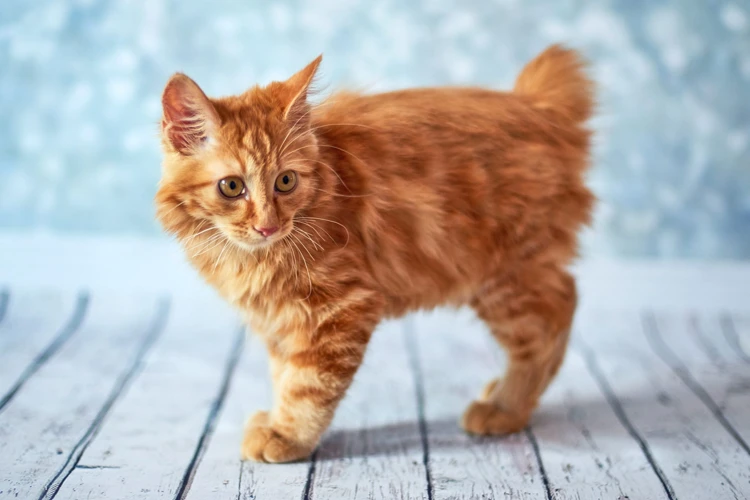
When it comes to maintaining the dental health of American Bobtails, there are a number of different treatments available. From professional teeth cleaning to dental surgery, these treatments can help to prevent dental issues, improve overall health, and even reduce vet bills over time. In this section, we’ll take a closer look at the various types of dental treatments that are available for American Bobtails. Whether you’re dealing with bad breath, tartar buildup, or other dental issues, there’s sure to be a treatment that can help. Let’s explore the options in more detail. For more information on Bobtail dental issues and vet visits, see our previous section. To learn more about treatments for bad breath in cats, check out this helpful guide.
Professional Teeth Cleaning
Professional teeth cleaning is one of the most common dental treatments for American Bobtails. During a professional teeth cleaning, a veterinary technician or veterinarian will use special instruments to remove built-up plaque and tartar from your furry friend’s teeth. This process helps prevent the development of dental diseases and ultimately improves your cat’s overall health.
Below are some of the benefits of professional teeth cleaning for American Bobtails:
- Preventing dental diseases: Regular professional teeth cleanings can prevent gum disease, tooth decay, and other dental issues that can cause your cat pain and discomfort.
- Improving air quality: Professional teeth cleaning can help freshen your cat’s breath and eliminate bad odors caused by bacteria in the mouth.
- Saving money: Preventing dental disease through regular professional teeth cleanings can save you money on expensive dental procedures down the line.
It’s important to note that professional teeth cleaning for American Bobtails usually requires anesthesia. Your cat’s veterinarian will perform a thorough exam to ensure that they are healthy enough for anesthesia. During the procedure, your cat will be closely monitored by the veterinary team to ensure their safety and comfort.
Professional teeth cleaning is an important part of your American Bobtail’s dental care routine. It can prevent dental diseases, improve their overall health, and even save you money in the long run. To ensure the best results for your furry friend, be sure to choose a trusted veterinary clinic with experience in dental treatments for cats.
Scaling and Polishing
Scaling and polishing is a dental treatment for American Bobtails that involves removing tartar buildup on their teeth using special dental tools. Tartar is a hard substance that forms when bacteria in the mouth mix with food debris and saliva. It can cause a range of dental problems and also lead to bad breath.
Here are the steps involved in scaling and polishing:
- The vet will first examine your American Bobtail’s teeth and gums to check for any signs of dental issues.
- Next, the vet will use an ultrasonic scaler to remove the tartar from your cat’s teeth. This tool uses high-frequency vibrations to break the tartar away from the tooth surface.
- Once the tartar is removed, the vet will use a hand scaler to remove any remaining tartar and smooth out the tooth surface.
- The vet will then use a polishing tool and a special toothpaste to polish your cat’s teeth. Polishing helps remove any remaining plaque and also smooths out the tooth surface, making it harder for bacteria to stick to it.
Scaling and polishing is a highly effective dental treatment for American Bobtails. It helps prevent dental issues, such as cavities and gum disease, and also reduces the risk of bad breath. Your cat will also have a healthier mouth, which can lead to improved overall health. However, it’s important to note that scaling and polishing does require anesthesia, as the procedure can be uncomfortable for cats. The vet will monitor your cat throughout the procedure to ensure their safety.
Fluoride Treatment
Fluoride treatment is one of the dental treatments that is often recommended for American Bobtails. This treatment involves applying a high concentration of fluoride to the teeth to prevent tooth decay and strengthen the tooth enamel. Fluoride is a mineral that naturally occurs in water and can also be found in certain foods. It has been shown to effectively reduce the risk of cavities and tooth decay.
How does Fluoride Treatment work?
Fluoride works by remineralizing the tooth enamel, which is the hard protective coating on the outside of the tooth. When the enamel is weakened by bacteria, acid or other factors, fluoride helps to strengthen it by attracting other minerals such as calcium to the tooth. Once this happens, the enamel becomes stronger and more resistant to decay.
Fluoride treatment is a simple procedure that can be done at the veterinarian’s office. After a dental cleaning and polishing, the vet will apply a fluoride gel or foam to your cat’s teeth using a special applicator. The fluoride will be left on the teeth for a few minutes before being rinsed off to ensure that it is absorbed.
Benefits of Fluoride Treatment
Fluoride treatment has several benefits for American Bobtails, including:
| Benefit | Explanation |
|---|---|
| Preventing Tooth Decay | By strengthening the tooth enamel, fluoride treatment helps to prevent cavities and tooth decay. |
| Reducing Sensitivity | Fluoride treatment can help to reduce tooth sensitivity, which can be a problem for some cats. |
| Protecting Against Acid Erosion | Acid from foods and drinks can erode the tooth enamel, but fluoride treatment can help to protect the teeth from this damage. |
Is Fluoride Treatment Safe?
Fluoride treatment is generally safe for American Bobtails, but it is important that the right amount is used. Too much fluoride can be harmful to cats and can cause a condition called fluorosis, which can lead to brown spots or lines on the teeth. For this reason, it is important to have the fluoride treatment done by a licensed veterinarian who knows the correct dosage for your cat’s size and weight.
Fluoride treatment is a safe and effective way to help prevent tooth decay in American Bobtails. It can be done as part of a regular dental cleaning and check-up to ensure that your cat’s teeth and gums are healthy and strong.
Dental Surgery
Dental surgery is an option for American Bobtails that have severe dental issues. These surgeries can be performed by a veterinary dentist or a general veterinarian with experience in dental procedures. There are several types of dental surgery that may be recommended depending on the cat’s individual needs. Here is an overview of common dental surgeries for American Bobtails:
| Dental Surgery Type | Description |
|---|---|
| Tooth Extraction | Removal of damaged, diseased, or loose teeth that cannot be salvaged by other treatments. |
| Gingivectomy | Removal of overgrown gums that may be causing pain, bleeding, or infection. |
| Root Canal Therapy | Pain relief procedure used to save a severely damaged or infected tooth by removing its pulp. |
| Crown Placement | Used to restore a weakened, cracked or broken tooth with a dental crown that is bonded to the tooth. |
| Orthodontic Treatment | Used to correct bite problems or malpositioned teeth that may be causing pain or difficulty eating. |
Dental surgery is not a decision to be taken lightly and should only be recommended when other treatments have been exhausted or are not viable options. In some cases, such as advanced periodontal disease, tooth extraction may be necessary to prevent further pain and infection. Orthodontic treatment may be recommended for severe bite problems that cannot be corrected with other dental procedures.
It is important to note that dental surgeries require general anesthesia, which comes with its own set of risks. It is crucial to choose a qualified and experienced veterinarian to perform the surgery and closely monitor the cat’s recovery.
Dental surgeries can greatly improve the quality of life for American Bobtails with severe dental issues. It is essential for pet owners to discuss all treatment options with their veterinarian and make an informed decision based on the individual needs of their cat.
Benefits of Dental Treatments for American Bobtails
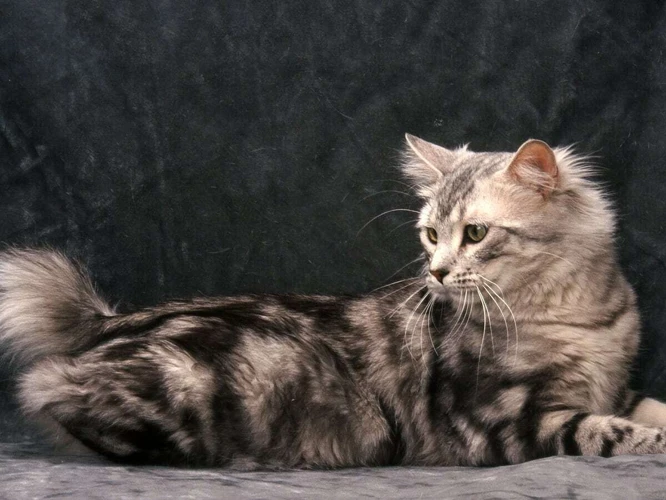
Taking care of your American Bobtail’s dental health is crucial for their overall well-being. Regular dental treatments not only prevent dental diseases but also improve their quality of life and reduce vet bills. Let’s explore the numerous benefits of dental treatments for your feline friend, from preventing dental problems to enhancing their overall health.
Preventing Dental Diseases
It’s no secret that dental hygiene is important for human health, but did you know that it’s just as essential for our furry friends? American Bobtails are no exception, and neglecting their dental health can have serious consequences. Regular dental treatments can help prevent dental diseases, such as gingivitis and periodontitis, which can lead to tooth loss and other health problems.
Preventive measures include:
- Regular teeth cleanings, which can remove plaque and tartar buildup before it causes damage.
- Fluoride treatments, which can help strengthen tooth enamel and prevent decay.
- Scaling and polishing, which can help clean teeth thoroughly and improve their appearance.
- Dental surgery, which can correct more serious dental issues and prevent them from worsening over time.
By taking these preventive measures, you can help keep your American Bobtail’s teeth and gums healthy and prevent dental diseases from occurring.
In addition to preventing dental diseases, regular dental treatments can also improve your cat’s overall health. Poor dental health can lead to bacterial infections and inflammation, which can have negative effects on the immune system and other parts of the body. By keeping your cat’s teeth clean and healthy, you can reduce the risk of secondary health issues and improve their quality of life.
Other benefits of dental treatments for American Bobtails include:
- Reducing bad breath and unpleasant odors
- Preventing pain and discomfort associated with dental diseases
- Reducing the risk of heart disease and other systemic problems
Preventive dental treatments are a vital aspect of American Bobtail care. By investing in regular dental care for your cat, you can help protect their health and wellbeing and ensure that they live a long and happy life.
Improving Quality of Life
Dental treatments can greatly improve the quality of life for American Bobtails. Here are some ways in which dental treatments can help:
| Benefit | Description |
|---|---|
| Improved Eating | With healthy teeth and gums, cats can chew and eat their food properly, which can prevent indigestion and other digestive issues. |
| Reduced Pain and Discomfort | Tooth decay and gum disease can cause a lot of pain and discomfort for cats. With dental treatments, these issues can be treated and cats can enjoy a pain-free life. |
| Improved Overall Health | Poor dental hygiene has been linked to various health issues such as heart disease, pneumonia, and kidney disease. By improving your American Bobtail’s dental health, you can reduce the risk of such health issues and help them live a healthy and happy life. |
| Improved Breath | Cats with dental problems often suffer from bad breath, which can be uncomfortable for both the cat and the owner. Dental treatments help in preventing bad breath by removing the buildup of bacteria and tartar. |
Taking care of your American Bobtail’s dental health not only prevents dental diseases but also improves their overall well-being. Regular dental treatments can help prevent various health issues and discomfort while promoting a healthy and happy life for your cat.
Reducing Vet Bills
Regular dental treatments for American Bobtails can lead to a reduced number of vet bills over time. It’s a common misconception that dental treatments are expensive and unnecessary. However, the cost of routine dental checkups and treatments is much lower than that of dental surgery or even treating the secondary health issues arising from poor dental hygiene.
Poor dental hygiene can cause various dental issues for your American Bobtail, such as periodontal disease, gingivitis, and tooth decay, leading to severe health problems. Treating these conditions can be expensive, and in some cases, they may require dental surgery that can increase vet bills.
The table below illustrates the average vet bills for dental treatments for American Bobtails:
| Treatment | Average Cost |
|---|---|
| Professional Teeth Cleaning | $200 – $400 |
| Scaling and Polishing | $300 – $700 |
| Fluoride Treatment | $50 – $150 |
| Dental Surgery | $1,000 – $1,500 |
As can be seen from the table, the cost of preventive measures such as professional teeth cleaning and fluoride treatment is much lower than that of dental surgery. Regular dental checkups and treatments can prevent the development of severe dental issues that require time-consuming, expensive treatments.
Dental problems can cause other health issues in American Bobtails, including heart, kidney, and liver diseases that can be even more expensive and stressful for your pet. Investing in routine dental treatments can improve the overall health and quality of life of your American Bobtail and reduce the risk of expensive vet bills in the future.
By investing in regular dental treatments for your American Bobtail, you can reduce the risk of costly vet bills in the future. Preventive dental care can not only save you money but also lead to fewer health issues for your furry friend, improving their overall well-being.
How Often Should American Bobtails Get Dental Treatments?
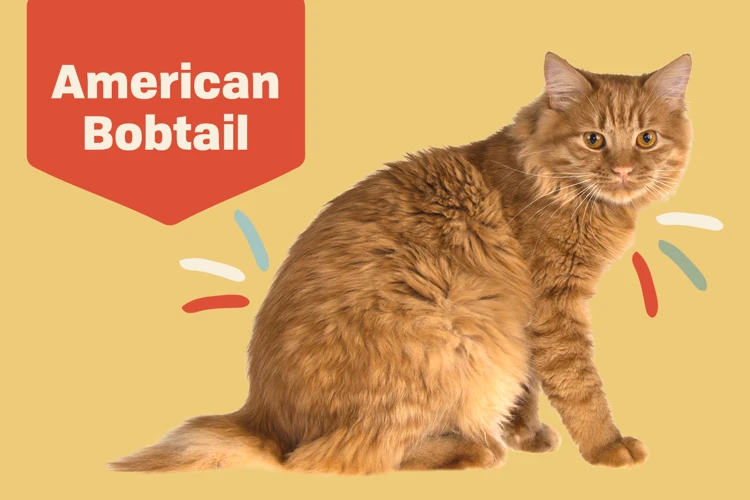
As a pet owner, it’s important to ensure your American Bobtail’s dental health is in top shape. So, how often should they get dental treatments? Well, the answer depends on various factors such as their age, breed, and overall dental health.
Young American Bobtails: Kittens aged 4 to 6 months old tend to develop their set of permanent teeth. A veterinarian may recommend scheduling their first dental checkup around this time to ensure their teeth are growing correctly.
Adult American Bobtails: Once an American Bobtail reaches adulthood, they should receive annual dental checkups. During these appointments, a veterinarian will examine their teeth, gums, and mouth for any abnormalities.
Elderly American Bobtails: As American Bobtails age, they become more susceptible to dental problems. It’s recommended that senior American Bobtails receive dental checkups every six months.
Ultimately, the frequency of dental treatments depends on your cat’s individual needs. If your American Bobtail has had dental problems in the past or is prone to dental issues, your veterinarian may recommend more frequent dental checkups.
Regular dental treatments can prevent tooth decay, gum disease, and other serious health problems. So, make sure to schedule regular dental checkups for your American Bobtail to keep their dental health in tip-top shape.
Signs of Dental Problems in American Bobtails
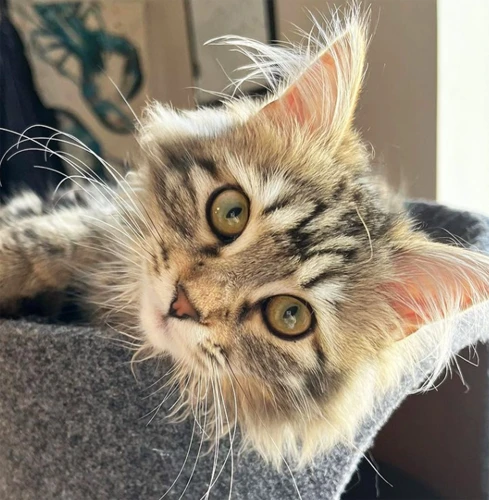
As a pet owner, it’s crucial that you keep an eye out for any signs of dental problems in your American Bobtail. These signs can indicate that your cat needs immediate dental attention. Some of the most common signs of dental problems in American Bobtails include bad breath, loose teeth, bleeding gums or any other abnormal discharge from the mouth, difficulty chewing or eating, drooling or excessive salivation, loss of appetite, weight loss, decreased energy levels or lethargy, and pawing at the mouth or face.
If you notice any of these signs, it’s best to take your American Bobtail to the vet for a check-up as soon as possible. Ignoring dental problems can lead to serious health issues and chronic pain for your cat. Additionally, untreated dental problems can result in expensive dental procedures or even tooth extractions, which can harm your cat’s oral health in the long run.
It’s important to keep in mind that American Bobtails are good at hiding pain, so even if your cat is not displaying any of these signs, regular dental check-ups are still essential to maintain their oral health.
How to Take Care of Your American Bobtail’s Teeth at Home
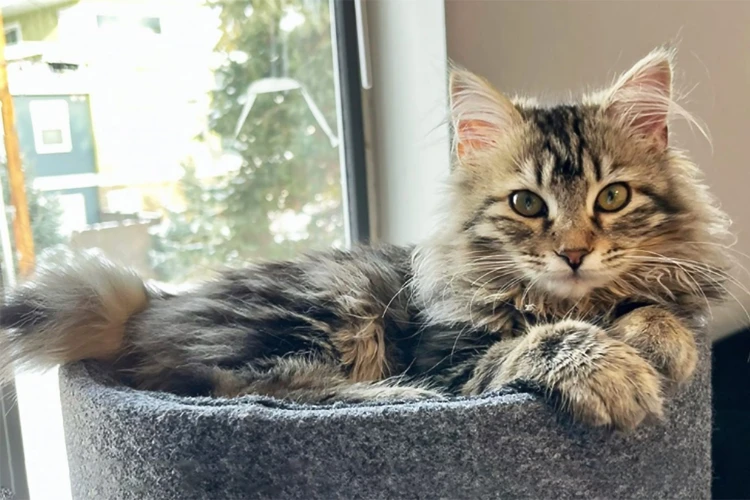
Taking care of your American Bobtail’s teeth at home is crucial to maintaining good dental health between vet visits. Here are some tips to keep in mind:
1. Brush their teeth regularly: Brushing your cat’s teeth at least once a week can help remove plaque and prevent tartar buildup. Use a cat toothbrush and toothpaste specifically formulated for pets.
2. Provide dental chews or toys: Giving your cat dental chews or toys can help promote healthy teeth and gums by removing plaque and tartar.
3. Feed a balanced diet: Providing your cat with a balanced diet can help prevent dental problems. Avoid feeding them sugary or carb-heavy treats as they can contribute to tooth decay.
4. Monitor their behavior: Keep an eye on your cat’s behavior and look out for any signs of dental issues such as bad breath, drooling, or difficulty eating.
5. Regular checkups: Regular visits to the vet can help catch dental problems before they become more serious. Your vet can recommend when your cat needs a professional dental cleaning and can check for any signs of issues during their checkups.
By following these tips, you can help keep your American Bobtail’s teeth healthy and prevent dental issues. It’s important to note that while these practices can help prevent problems, they shouldn’t replace professional dental cleanings recommended by your vet.
Choosing the Right Vet for Dental Treatments
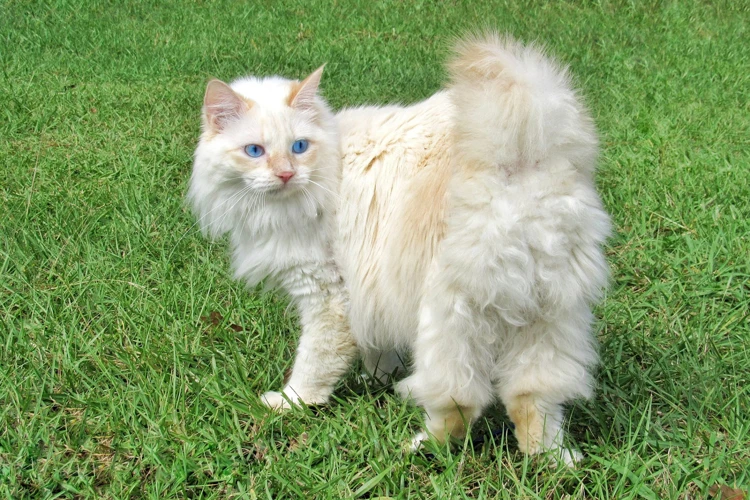
When it comes to getting dental treatments for your American Bobtail, choosing the right vet is crucial. You want to ensure that your pet is in good hands and receives the best treatment possible. Here are some important factors to consider when selecting a vet:
Experience and Qualifications: Look for a vet who has experience in providing dental treatments to American Bobtails. They should also have the necessary qualifications and training to perform the procedures.
Facilities: The facilities of the vet clinic should be clean and hygienic. Make sure they have proper equipment for dental procedures as well.
Reviews and Recommendations: Check online for reviews of the vet and their services. You can also ask for recommendations from friends or other pet owners.
Cost: Costs can vary for dental treatments depending on where you live and the vet you choose. Make sure to get a detailed breakdown of the costs before committing to any procedures.
Communication: It’s important to choose a vet who communicates well with you and your pet. They should be able to answer any questions you have and explain the procedures in detail.
When selecting a vet for dental treatments, take your time and do your research. It’s always better to choose a vet who you feel comfortable with and who has the necessary qualifications and experience to provide top-notch care for your American Bobtail.
FAQs
If you’re a cat owner, you might have a lot of questions about dental treatments for your American Bobtail. To clear up some of the confusion, we’ve put together a list of frequently asked questions (FAQs) and their answers. In this section, we’ll address some of the most common concerns that cat owners have about dental treatments for American Bobtails. So, let’s dive into these questions and bust some of the myths surrounding dental treatments.
What do dental treatments for American Bobtails involve?
When it comes to dental treatments for American Bobtails, there are several different procedures that may be involved. These treatments are key to maintaining an American Bobtail’s oral health and overall well-being. Some of the most common dental treatments for American Bobtails are described in the table below:
| Treatment | Description |
|---|---|
| Professional teeth cleaning | A thorough cleaning of your American Bobtail’s teeth and gums performed by a veterinarian, often involving scraping away tartar buildup and polishing the teeth. |
| Scaling and polishing | A more in-depth cleaning than a professional teeth cleaning, where the veterinarian may go beneath the gum line to remove tartar and bacteria buildup. Polishing can also be done to smooth the teeth and reduce future buildup. |
| Fluoride treatment | A treatment where fluoride is applied to your American Bobtail’s teeth to help protect them against future decay. |
| Dental surgery | A more serious procedure where the veterinarian performs surgery on your American Bobtail’s teeth, gums, or jaw to treat a specific dental problem such as tooth extraction or gum disease. |
It is important to note that the specific dental treatments your American Bobtail may need will depend on their specific dental health needs. It is recommended that you consult with a veterinarian to determine the best course of action for your pet.
Do American Bobtails need anesthesia for dental treatments?
If your American Bobtail requires dental treatments, such as teeth cleaning or dental surgery, they will most likely require anesthesia. The use of anesthesia ensures that the procedure is painless and safe for your cat.
Here are some reasons why anesthesia is necessary for dental treatments for American Bobtails:
- Relaxation and immobilization: Anesthesia helps in relaxing and immobilizing your cat during the procedure, ensuring that they do not move or wiggle around, which could result in injury or complications.
- Pain management: It helps in managing pain and discomfort, which is especially essential for procedures like dental surgery that could be painful without proper anesthesia.
- Ensuring safety: Anesthesia helps ensure the safety of your cat during the procedure by allowing the vet to monitor important physiological parameters like blood pressure, breathing rate, oxygen saturation, and heart rate.
However, it is important to note that the use of anesthesia for dental treatments for American Bobtails comes with some risks, such as allergic reactions or adverse side effects. Your vet will evaluate your cat’s health status before administering anesthesia to determine whether or not it’s safe for them. They will also monitor your cat closely during and after the procedure to ensure that they wake up from anesthesia safely and without any complications.
Bottom line: American Bobtails will most likely require anesthesia for dental treatments. However, it’s important to discuss any concerns or questions you may have with your vet to ensure your cat’s safety and well-being.
How much do dental treatments for American Bobtails cost?
The cost of dental treatment for American Bobtails can vary depending on the procedure and the veterinary clinic where it is performed. Keeping your cat’s teeth healthy can save you money in the long run by preventing severe dental problems that can be costly to treat.
Here is a breakdown of the average costs of some common dental procedures for American Bobtails:
- Professional teeth cleaning: A professional teeth cleaning for your American Bobtail, which involves removing tartar and plaque buildup, can cost anywhere between $200 and $400.
- Scaling and polishing: Scaling and polishing are usually done to remove tartar buildup. The average cost for this procedure is around $200 to $500.
- Fluoride treatment: This treatment typically costs around $50 to $90, and it is an excellent preventive measure for dental diseases.
- Dental surgery: If your cat has severe dental issues, dental surgery may be necessary. The cost of this procedure can range from $500 to $1,500, depending on the severity of the problem.
It is important to note that these costs are averages and can vary depending on your location and the veterinary clinic you choose. Some clinics may offer dental packages that include multiple procedures at a discounted rate. It’s always best to consult with your veterinarian about the cost and necessity of dental treatments for your American Bobtail.
Conclusion
In conclusion, dental treatments are crucial for maintaining the health and well-being of your American Bobtail. Regular dental check-ups, professional teeth cleaning, scaling and polishing, fluoride treatment, and dental surgery are all essential to prevent dental issues, improve overall health, prevent bad breath and tartar buildup, and reduce vet bills.
Taking care of your American Bobtail’s teeth at home through regular brushing and feeding them with dental-friendly foods can also go a long way in maintaining good oral hygiene. However, it is important to choose the right vet for dental treatments, as they must be experienced and skilled in administering the necessary procedures.
By investing in your American Bobtail’s dental health, you are investing in their overall quality of life. Not only do dental treatments prevent the onset of dental diseases, but they also improve your cat’s ability to eat, play, and live comfortably. Don’t wait until your cat experiences pain or discomfort before taking action – schedule regular dental check-ups and treatment today to ensure they have the best possible oral health.
Frequently Asked Questions
What are some common dental problems American Bobtails face?
American Bobtails are prone to dental problems such as gum disease, tartar buildup, tooth decay, and bad breath.
At what age should American Bobtails start getting dental treatments?
American Bobtails should start getting dental treatments around the age of three.
Are there any at-home dental care options for American Bobtails?
Yes, you can brush your American Bobtail’s teeth regularly and give them dental treats and toys to help maintain their dental health
What is scaling and polishing?
Scaling and polishing is a dental treatment where a professional removes buildup on the teeth and polishes them to a smooth surface.
What is fluoride treatment?
Fluoride treatment is a dental procedure that involves applying a fluoride solution to your American Bobtail’s teeth to prevent tooth decay and strengthen enamel.
What are some signs of dental problems in American Bobtails?
Signs of dental problems in American Bobtails include bad breath, loose teeth, difficulty eating, drooling, bleeding gums, and reluctance to eat.
Can dental treatments be performed without anesthesia?
No, in most cases, dental treatments for American Bobtails require general anesthesia to ensure their safety and comfort during the procedure.
How often should American Bobtails get dental cleanings?
American Bobtails should get dental cleanings once every six months to maintain optimum dental health.
The cost of dental treatments for American Bobtails varies depending on the type of treatment and location but it typically ranges from $200 to $600.
What are the benefits of choosing a vet experienced in dental treatments?
Choosing a vet experienced in dental treatments can result in more effective and efficient procedures, reduced stress on your American Bobtail, and more thorough aftercare instructions.

